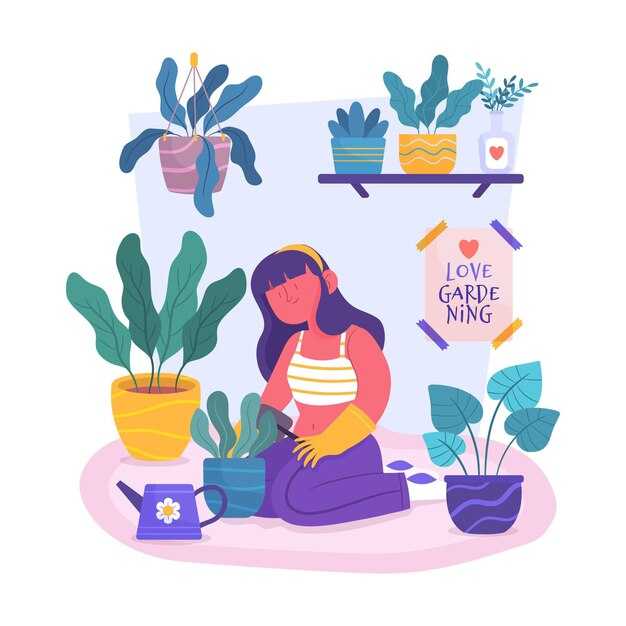“Don’t go to bed angry,” “a good relationship means never having to say you’re sorry,” “your partner should complete you,” and “your relationship’s purpose is to make you happy” — these are a few of the widespread relationship myths I’ll be unpacking here. I’ll either fully disprove them or concede a sliver of truth where it exists. Normally I avoid one-line fixes for complicated issues, but I’ll move through these fairly briskly because there’s a lot to cover today. Cut me some slack — we’ll agree on some points and disagree on others, so let’s keep it engaging. First myth: true love means never fighting. I’ll grant that if fighting means abuse, name-calling, or shouting, then that’s not love. But the idea that true love never involves disagreement is simply false. Conflict is a natural, even necessary, element of close relationships. Couples who never argue are often staying quiet out of fear or because they don’t trust that honesty is safe, and silence breeds distance. You will clash, get irritated, feel hurt now and then — that’s part of intimacy. What actually matters is how you handle those moments. Disagreements are chances to deepen connection if you choose to listen, be curious about your partner’s perspective, acknowledge their needs and pain, and take responsibility for your part—repairing harm with a real apology rather than defensiveness or dismissal. Myth number two: your partner should complete you. Absolutely not. People can complement, support, and rely on each other in healthy ways, but you shouldn’t make another person responsible for your sense of worth or identity. Codependency becomes dangerous when you tether your value, purpose, or emotional survival to someone else’s validation. Loving someone doesn’t mean losing yourself or trying to fix their wounds for them; you can’t carry the burden of saving another person without abandoning your own wholeness. Myth three: your partner should meet every single one of your needs. No — they aren’t a vending machine for your emotional fulfillment. That said, certain needs are reasonable to expect from a committed partner: intimacy, connection, trust, consistency, empathy. These needs are opportunities to grow closer. It’s wise for partners to be explicit about what makes them feel loved and valued and to do what they reasonably can to meet those needs, while recognizing that not every need can or should be fulfilled by one person alone. Myth four: if it’s meant to be, it will be easy. Far from it. Relationships require two people willing to do the work: humility, self-reflection, intentionality, and mutual service. They can’t run on autopilot. That doesn’t mean a healthy relationship should feel like a soul-crushing job or that you should tolerate chronic toxicity or taking on someone else’s healing. What it does mean is that anything worth having—like a marathon, a degree, or building a home—demands effort, sacrifices at times, and continual investment. Two partners who consistently show up to cultivate trust and intimacy are the ones who build something lasting. Myth five: love is all you need. Not true. Love words alone aren’t enough; actions matter far more. Respect, equality, the ability to apologize and repair, and not invalidating vulnerability are all essential components of love in practice. Genuine love includes mutual service, clear communication, empathy, and boundaries. Loving yourself with compassion and protecting your own needs is part of that picture; don’t confuse love with tolerating mistreatment. Next: the spicy myth that if you must schedule sex it means the relationship is failing. Wrong. Sexual intimacy should always be consensual, safe, and considerate, but it won’t be spontaneously sizzling 100% of the time — life, stress, and many other factors affect desire. Scheduling intimate time can be a loving, pressure-free way to prioritize connection, as long as both partners are clear on expectations and comfortable with the plan. Ask each other what influences desire: do you need emotional closeness first, or does physical connection spark emotional intimacy? Lots of people experience spontaneous desire and others respond to cues — both patterns are normal. Scheduling intimacy can be playful and anticipatory, a tool to reignite spark rather than a clinical chore, provided it’s approached with trust, safety, and mutual creativity. Myth seven: “don’t go to bed angry.” That’s awful advice. Sometimes it’s healthier to pause and sleep than to try resolving a heated, flooded conflict at 11 p.m. When people are emotionally flooded, their rational brain shuts down and they operate from fight, flight, freeze, or fawn. In those moments, continuing the argument often does more harm than good. The better approach is to take a mandatory break—30 minutes, a night’s sleep—and then come back intentionally to resolve or calmly discuss the issue. Avoiding hard conversations forever, or handling them in toxic ways, leaves you disconnected. Myth eight: a “good relationship” means never apologizing. That’s backwards. A healthy relationship thrives when partners are skilled at noticing when they’ve hurt one another—often unintentionally—and stepping forward to listen, validate, and repair. A genuine apology looks like curiosity (“tell me what happened”), empathy (“I understand why that hurt”), accountability (“I’m sorry; I won’t do that again”), and changed behavior. Hollow or defensive apologies (“I’m sorry you feel that way” or “it was just a joke”) erode trust. The strongest apologies are accompanied by real change. Myth nine: the grass is greener on the other side. Not usually—the grass gets greener where you water it. If your current relationship is toxic, no amount of tending on your part will make it flourish if the other person won’t reciprocate. Sometimes the grass really is better on the other side—if you leave a partner who is inconsistent, neglectful, or devaluing and find someone who actually wants to cultivate a healthy bond, that can lead to growth you couldn’t force on dead soil. Learn what “watering” looks like: appreciation, consideration, selflessness, showing up as a safe person, revisiting hurts, and seeking to understand and reassure each other. Pull weeds by stopping resentment and silence before they take root. Myth ten: your relationship should make you happy. This is nuanced. You should feel joy and fulfillment in your relationship, and chronic unhappiness is a red flag. But your partner shouldn’t be the sole source of your happiness. A relationship should complement your well-being, not determine it entirely. Relying on your relationship as the only measure of your life satisfaction sets you up for instability. Myth eleven: everything will fall into place once you find your soulmate. There’s no magical soulmate who removes all effort—strong relationships are built, not stumbled upon. You might be compatible with many people, and even with a highly compatible partner you’ll still face challenges. A lasting bond grows through commitment, humility, service, understanding, and consistent work. Myth twelve: having children will fix your relationship. Highly unlikely; in fact, adding kids often reveals and amplifies existing weaknesses. Parenthood transforms a partnership and can be beautiful, but if the foundation (communication, trust, emotional maturity) is shaky beforehand, the stress of parenting will expose those fractures. Children don’t break a marriage; unresolved problems do. If your relationship is unhealthy before having kids, seek help and healing rather than assuming children will glue things together. Myth thirteen: “If you can’t handle me at my worst, you don’t deserve me at my best.” That’s a dangerous entitlement. It implies you can behave poorly and expect forgiveness because you’re “worth it” when you’re nice. Growth-minded partners work on the worst parts of themselves; they don’t demand tolerance for harmful behavior as a prerequisite for affection. Continual disrespect, abuse, or refusal to change is not something a partner must “handle.” Myth fourteen: if they love you, they should know what you’re thinking or feeling. People aren’t mind readers. Long-term partners should learn each other’s inner worlds, and it’s reasonable to expect attentive curiosity, but expecting someone to automatically know your needs without communicating them is unfair. If your partner responds defensively to “you should already know,” try reflecting their hurt and committing to learn: “It sounds like you’re upset I don’t know — I want to do better; tell me what you need.” Vulnerability and explicit communication are necessary; “you should know” without being vulnerable tends to become blame. Myth fifteen: good relationships don’t need boundaries. Wrong. Boundaries are healthy guardrails that define who you are and protect your well-being. Without them you risk resentment, depletion, and feeling mistreated. Boundaries aren’t acts of spite; they’re expressions of self-respect. Ask your partner what their limits are around conflict, yelling, or other behaviors, and make sure you honor your own first. Myth sixteen: relationships should always be 50/50. I both agree and disagree. Reciprocity and fairness matter, but life comes in seasons. Sometimes one partner gives more — 80/20 or 70/30 — for a period due to illness, career demands, or grief. That’s normal if it’s temporary and balanced over time. The real goal is not a rigid equality but showing up as the best partner you can be, consistently protecting trust and intimacy across the long haul. Myth seventeen: if you’re truly in love, you’ll never be attracted to anyone else. Attraction to others can and does happen; what matters is how you respond. Being attracted isn’t an automatic betrayal, but acting on it in ways that harm your relationship or habitual fantasizing and flirting can signal unmet needs or issues that deserve attention. Ask yourself what the attraction points to—an inner longing, an unmet need, or something lacking in the relationship? Myth eighteen: you should always put your partner’s needs before your own. Mutual selflessness is valuable, and partners will often sacrifice for one another, but never always subordinating your needs is healthy. Boundaries require you to protect your own limits and wellbeing. Relationships work best when both people learn what makes the other feel close and then consistently prioritize those things, but not at the cost of your identity or self-respect. Myth nineteen: stay together for the children. You should do everything possible to avoid divorce by strengthening the relationship and modeling healthy connection for your kids. But staying in an abusive, addictive, or chronically toxic relationship for the sake of the children is harmful. Kids exposed to abuse, neglect, or constant fighting suffer — they don’t benefit from a parent sacrificing safety and dignity. Modeling boundaries, accountability, and healthy separation when necessary teaches children that they deserve kindness and respect. Myth twenty: your childhood doesn’t significantly affect your relationships. In fact, your upbringing and past attachments usually shape how you relate as an adult. Childhood is a classroom where you learn whether people are safe to trust, whether emotional expression is accepted, and how to handle intimacy. Many adults carry insecure attachment styles learned in childhood; those patterns influence triggers and the nervous-system responses that surface most strongly in close romantic relationships. Awareness and healing are possible, but your past matters more than people often realize. I hope this walkthrough was useful — share any myths I missed in the comments, and if you found this helpful, like or subscribe so this reaches more people. Thanks — I’ll see you in the next one.



 Believing This Myth Will Hurt Your Relationship">
Believing This Myth Will Hurt Your Relationship">

 La Limerenza È Una Soluzione Tossica per una Vita Solitaria e Senza Gioia (Compilation di 4 Video)">
La Limerenza È Una Soluzione Tossica per una Vita Solitaria e Senza Gioia (Compilation di 4 Video)">
 FWB & Attachment Styles: The Unexpected Connection">
FWB & Attachment Styles: The Unexpected Connection">
 Recognizing and Escaping Toxic Friendships (4-Video Compilation)">
Recognizing and Escaping Toxic Friendships (4-Video Compilation)">
 You’re NOT Overreacting — This Is Exactly How They Silence You">
You’re NOT Overreacting — This Is Exactly How They Silence You">
 ">
">
 10 Strategie di regolazione emotiva per la vita di tutti i giorni">
10 Strategie di regolazione emotiva per la vita di tutti i giorni">
 Tua moglie è dipendente dalle piante?">
Tua moglie è dipendente dalle piante?">
 Only the default parent will understand.">
Only the default parent will understand.">
 7 Abitudini Che Hanno Facilmente Riacceso il Suo Desiderio">
7 Abitudini Che Hanno Facilmente Riacceso il Suo Desiderio">
 Should I break up with him?">
Should I break up with him?">